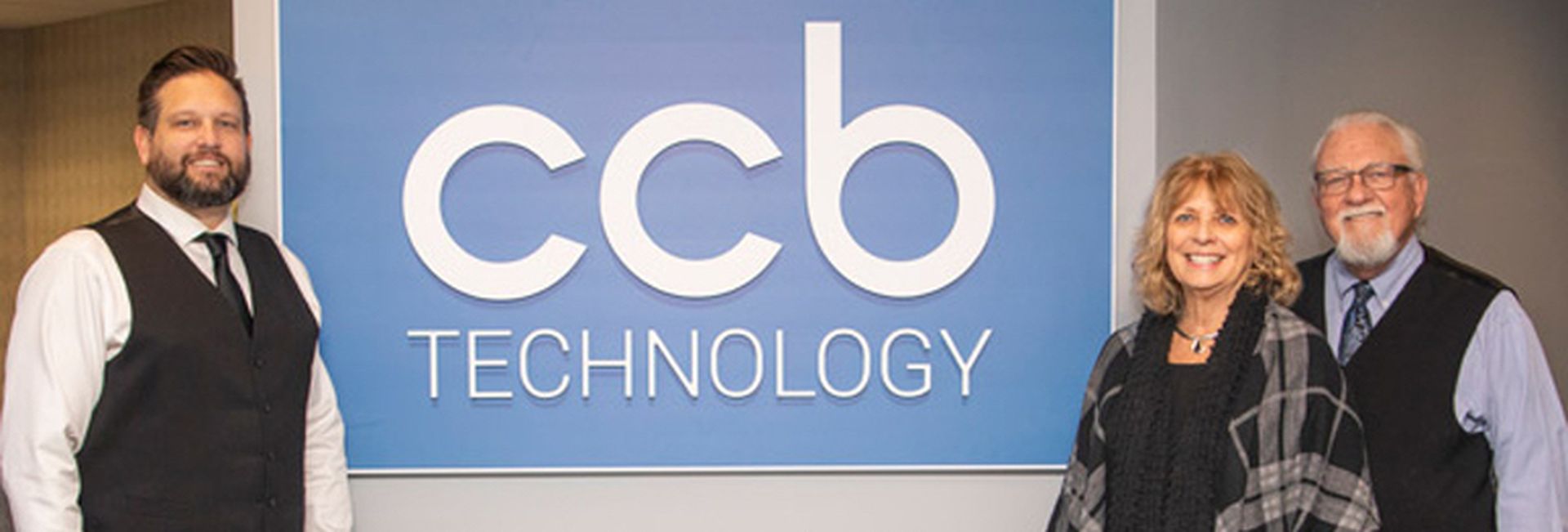CCB Technology, a national IT solutions and services provider, has transitioned ownership and executive leadership from the company's founders to their son.
The transition was part of a gradual, long-term plan that CCB shared with ChanneLE2E back in 2015.

Patrick Booth will take over for his parents, Chris and Patti, who launched the company in 1991. Patrick will now serve as CEO and president of the company, and now assumes the role of chairman. The younger Booth has been with the family business for many years, holding nine positions at CCB before becoming CEO.
“I never thought I’d run the family business. I grew up around the dinner table learning about being a business owner and it sounded like a lot of stress. Coming to CCB was not really discussed.”
So what changed? Read on for the quick back story.
Company History
When Chris and Patti started CCB in 1991 they wanted to create a resource to help nonprofits access affordable technology.
Gradually, the business shifted toward hosted applications more than a decade ago. Indeed, Racine, Wisconsin-based CCB became familiar with Microsoft’s early foray into cloud platforms. Microsoft’s BPOS (Business Productivity Online Suite) wasn’t very good, but CCB was able to study it and gain an understanding of the nascent technology.
When Microsoft later unveiled Office 365, CCB was well-positioned to ride the cloud wave and help customers with their buying decisions.
Meanwhile, Patrick Booth got pulled into the business -- but had to prove himself every step of the way. “I had to earn the respect of colleagues,” Patrick told ChannelE2E in 2016. “I was Chris Booth’s kid and I needed to prove I wasn’t given an easy road to leadership.”
While Patrick ascended the ranks of the company, CCB maintained a focus on its employees and customers. Each employee was given profit shares within 90 days of being hired. It was this “sales mentality,” championed by founder Chris Booth, that helped CCB weather the U.S. financial crisis of 2008. The company managed to grow its business without letting anyone go.
These days, CCB Technology is a nationwide business IT services provider with a specialty in planning, design, procurement, implementation, and management. The company works with more than 500 clients worldwide, offering customized solutions for security, mobility, cloud, and backup and disaster recovery.
Passing The Torch

By our own estimations, we should expect thousands of family-owned IT services businesses to face similar transitions in the coming years.
Many of these companies were family built and grown, and in many instances the younger generations have taken on a role in the company. But whether it's a good idea to hand over leadership remains to be seen.
Examples similar to CCB's story pop up across the IT services market. For instance, Directive -- which is owned by the Chase family -- allowed family members to earn more responsibilities, even if big titles and eventual ownership weren’t a designated birthright.
Family Owned: Built to Last?
More than 70 percent of all businesses in the United States are family-owned, but two out of three don’t survive a passing of the torch, according to Family Business USA President Henry Hutcheson.

Still, Hutcheson offered a number of tips to help families mitigate the transition:
1. Identify your children's’ individual strengths: Your children likely won’t have the same strengths as you. Which is fine, because your business is at a different stage compared to when you started it. Allowing a potential successor to contribute at their own pace will give them valuable experience.
2. Expose your children to all aspects of the job: Your children should see as much of what the job entails as possible. From merchandising to management, from marketing to financial planning. Even if you’re not completely familiar with all aspects of the business, you know who is.
There’s a reason the trope of the young kid working their way up from the mailroom is so popular. It teaches people how the company operates from the bottom up.
3. Stretch your child’s ability by having them work for another company: Jumping straight into the family business from college may not be a good idea. Children need to define themselves away from their parents. Working for someone else is a great way to do that. It gives them independence, teaches critical thinking, and if they choose to come work for the family business the decision will be natural and comfortable.
Poke around CCB, and you'll find that new CEO Patrick Booth had all three of those experiences during his journey to running the company.




